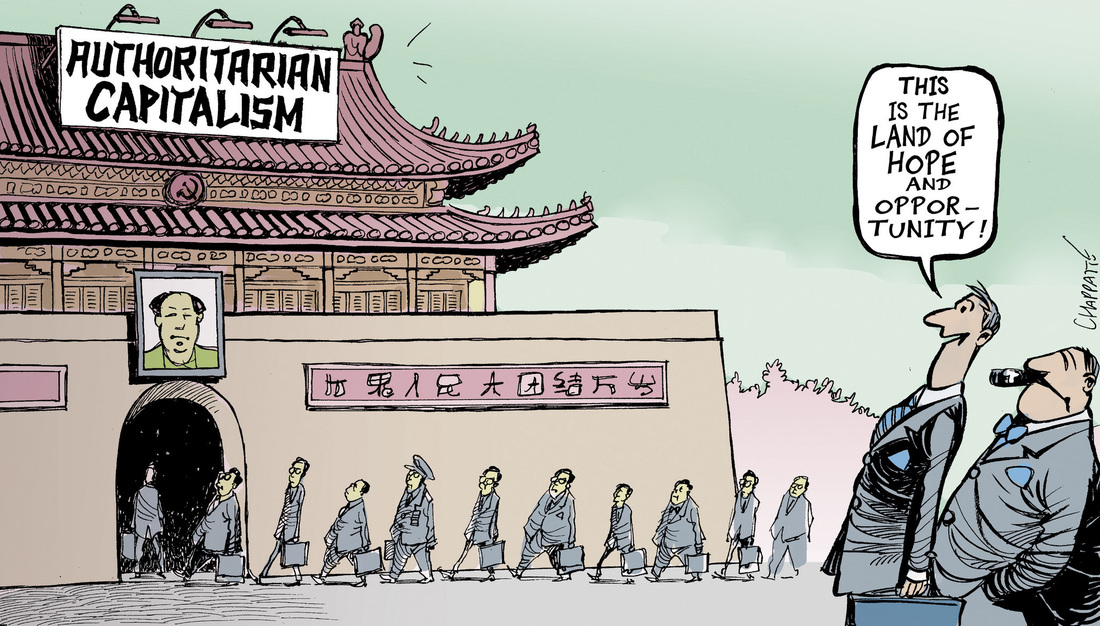http://www.techinsider.io/china-beipan-river-bridge-high-speed-railway-2015-11
|
Public transportation is definitely one of the few upsides in contemporary china and exemplifies how autocratic capitalism can accelerate a society's progress. Infrastructural progress has nevertheless sooner or later be balanced with value (call it spiritual or moral if you like) progress. China gains rapidly ground in the first, but is devastatingly empty in the latter. In Europe the picture looks more and more the other way round. Both conditions are not desirable.
http://www.techinsider.io/china-beipan-river-bridge-high-speed-railway-2015-11
0 Comments
China’s Economy on the Right Track
Since the stock markets tumbled 2015 many China watchers have projected a grim outlook on China’s economy. One acquainted banker who now works in real estate predicts that the CNY will depreciate against the USD from 6.5 to 9 until the end of 2016. Bad news for anyone who has invested in China; his main claim is a huge overcapacity on the real estate market and an unprecedented capital flight. Currency reserves have melted from a peak value of 4 trillion USD to currently 3.3 trillion USD, because each month about 150 billion are brought abroad. He argues that the Chinese central bank must keep 2 trillion in its treasure chest; therefore depreciation is the only mechanism to avoid turmoil by end 2016. The real estate market is sluggish throughout the country; only Beijing, Shanghai and Shenzhen continue to grow. 30% of 2-4th tier city real estate stock won’t be sold and the substantial overcapacity implies that absorption will take 5 to 10 years until the currently annual turnover of 12 million units will be entirely fueled again by new projects. Economists and China watchers seem to agree that China faces three headaches:
This Tuesday I had the pleasure to listen to a rather positive outlook presented by Hong Kong based Oxford Economics. The speaker argues that the Chinese central bank has three paramount targets, which need to be understood to predict its policy:
He elaborated that the national debt is indeed rising, but one must understand two important aspects about this debt:
He concludes that China, although not too big to fail, has still enough assets on the table to master upcoming challenges; it seems that this also involves some gambling. Mainly because the government has 60% of the GDP available for economic and financial measures, but currently only uses 40%. This remarkably positive outlook is in line with the analysis of a Bloomberg analyst who recently spoke on Sinica. He argues that China has definitely passed its peak growth rates, faces above mentioned challenges, a rapidly aging society, has already spent much money on large infrastructure projects like railways, highways, etc and therefore can’t play anymore the economy stimulus joker like it did in the past. But that’s also what happens according to the textbook when an economy turns from an undeveloped to a developing and eventually into a developed nation. He attests the Chinese government economic competence, because only few nations have managed to turn from poor into rich within a few decades, and agrees herein with the Oxford Economics speaker, that Far East Asian nations like Japan, Korea, Taiwan and now China have what it takes to become rich. I ask myself if China will experience a similar financial crisis like Japan 1990 or Korea 1997; and if yes, when? It looks like this is not going to happen within the next fixe to ten years. Another observer supports this assumption with three clear statements:
|
Archives
September 2023
Categories
All
|

 RSS Feed
RSS Feed